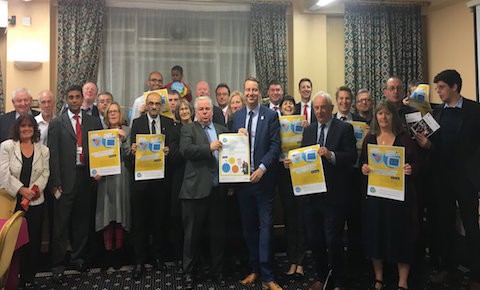A Cardiff city council committee celebrated last week their success at introducing the Real Living Wage in 2015. A motion was then passed to encourage Cardiff to become a living wage city, and follow the council’s footsteps of investing in the workforce.
The capital’s council was the first in Wales to steer away from the National Minimum Wage, which remains at £7.20 for over 25s. The council heard this week how their transition to the Real living Wage, higher at £8.20, had increased workplace efficiency, enhanced quality of work life, and helped see a 25% decrease in absenteeism.
Riverside Councillor Darren Williams said that nationally, Wales in particular was a problem as its low pay hourly earnings are the second lowest in Britain.
“Last year, 25.6% of employed adults in Wales were paid less than the Living Wage,” he said, adding that the national Government’s 2015 attempt to impose the Living Wage was not statistically successful.
Darren proposed, and won, last week’s motion that the Council promote Cardiff as a Living Wage City. Strategies would support organisations to become part of the Living Wage Foundation Scheme – a wage based on specific statistics from Citizens UK, which considers the socially defined levels of the goods and services particular employees deliver.
Living Wage week (30 October-4 November) will see Cardiff Castle’s walls emblazoned with the Living Wage Banner, and their flag flying proudly atop Pen-Y-Fan mountain, Brecon.
 Cardiff City Councillors bearing the Living Wage Week banners after the motion to support Cardiff as a Living Wage city was passed last Thursday
Cardiff City Councillors bearing the Living Wage Week banners after the motion to support Cardiff as a Living Wage city was passed last ThursdayCouncillor Heather Joyce seconded the motion, and said that one of her proudest moments was taking the positive steps towards the Living Wage for the Council’s lowest paid workers such as cleaners and maintenance staff.
“They now,” she said, “are £170 a month better off working 37 hours with the Living Wage. She added, “Yes, they may get the pence – but we give the pounds along with it.”
 The Councillors now wish to improve the Living Wage for workers aged 25 and under as the new motion does not cover their income
The Councillors now wish to improve the Living Wage for workers aged 25 and under as the new motion does not cover their incomeThe Living Wage allows independence, the ability to pay off debts, but as Councillor Stubbs, Splott, said: “It’s about more than money. Increased wages is about dignity.”
